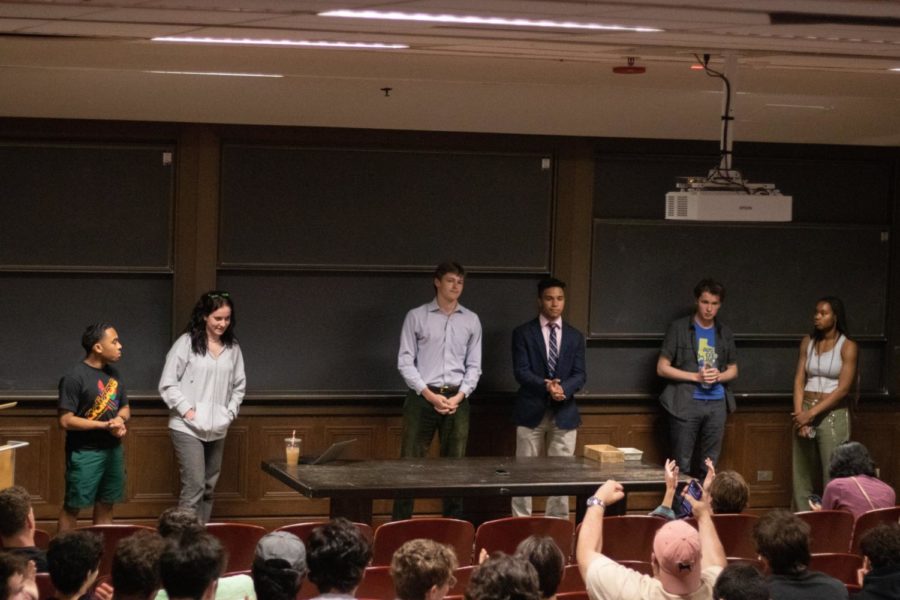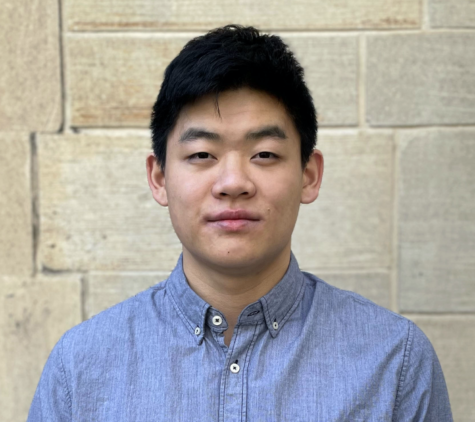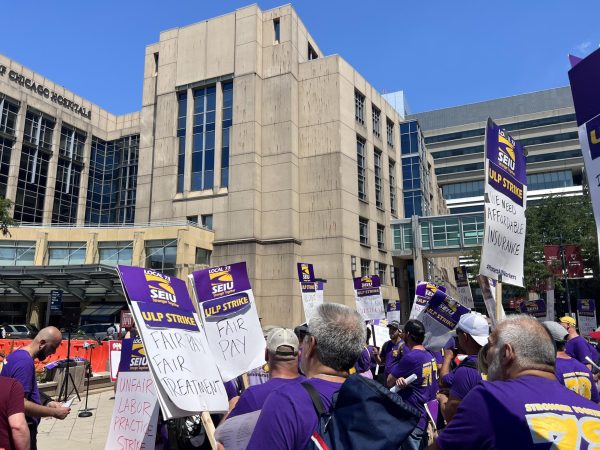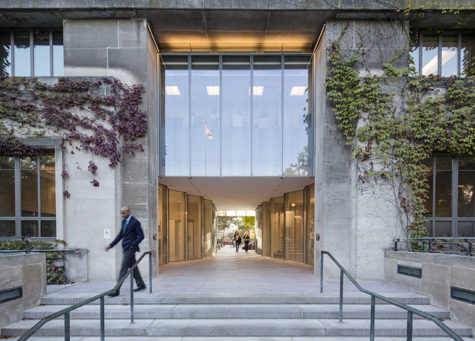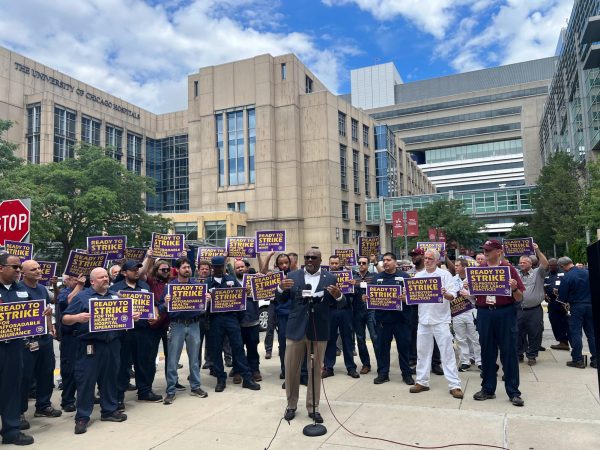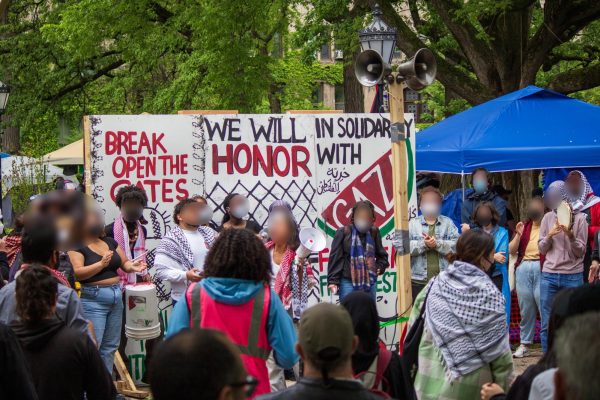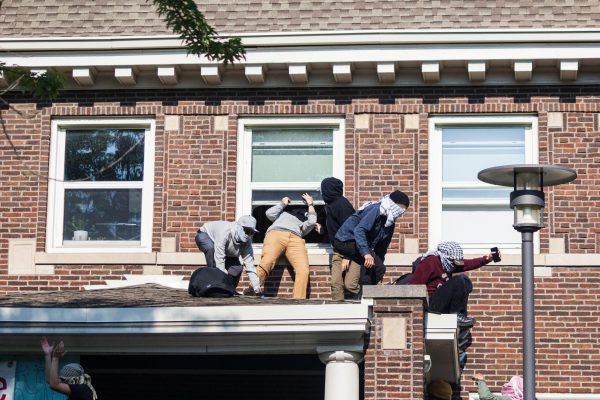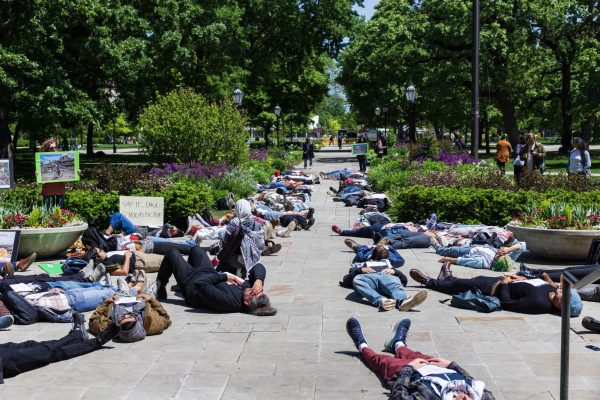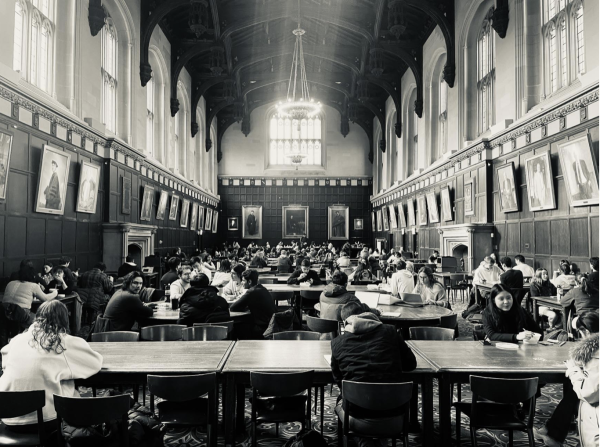On Eve of Elections, USG Slate Candidates Debate Spending, Student Engagement
The three slates running to lead Undergraduate Student Government discussed USG’s spending, support for RSOs, and USG’s relationship with the student body.
Slate candidates debate topics such as RSO funding and the role of USG on campus.
April 12, 2023
Candidates for the executive slate positions of president and executive vice president in the Undergraduate Student Government (USG) debated topics such as Recognized Student Organization (RSO) funding and the USG’s role on campus at Kent Laboratory on April 11. R. E. Stern, chair of the USG Elections and Rules Committee, moderated the debate.
The upLIFT slate, with third-year Julia Brestovitskiy running for president and first-year Elijah Jenkins running for executive vice president, introduced themselves as a duo familiar with the workings of the USG. Within the last three years, Brestovitskiy was a College Council representative, chair of two different committees, and currently holds the position of vice president of student affairs. Jenkins has one year of experience in the USG and is a College Council representative as well as a member of other committees.
Representing the Chicago for U ticket, second-year presidential candidate Benjamin Vacher and third-year executive vice president candidate Alexander Norton touted their status as newcomers to the realm of student government. “I have served no years on the undergraduate student government, I come as an outsider,” said Norton.
Finally, the Golden Slate Warriors (GSW) ticket is composed of third-year Jefferson Lind who is running for president, and second-year Ariana Ukaonu who is running for executive vice president. Lind and Ukaonu stated that they both have two years of experience working on the USG. Lind is the current executive vice president of the organization, and Ukaonu is the vice president of advocacy.
Stern opened the debate by asking the slates what they thought was the most pressing issue facing the USG. Answering for upLIFT, Jenkins stated that their biggest concern was RSO allocation funding. Norton raised the issue of lack of student engagement with USG, saying that the “USG has an issue of not really connecting with the community.” Ukaonu added that she and Lind were primarily concerned about “engagement within [USG] and a lack of management within the organization itself that is affecting our engagement with the student body.”
Stern then asked, “What is the biggest problem right now where the USG as an entity needs to improve?”
Lind stated that what the GSW found most concerning was that “USG dedicates a bunch of money to itself at the start of the year, and this has enabled, in my opinion, ludicrous spending on initiatives that other RSOs would never, ever, be approved for.” Ukaonu stated that the GSW planned to address this by “slashing [the] USG cabinet budget by over 50 percent and creating a dedicated RSO transfer fund.” Such a fund would allocate funding previously going to the USG to other organizations.
Vacher stated that his slate’s biggest concern was engagement and unity within the campus. “It’s really about getting people involved and getting them to care. I think it’s about putting on more events where you can get everyone together and have some common shared interest among the campus,” he said.
upLIFT’s biggest concern was USG’s lack of coordination with advocacy and community service RSOs. “The biggest issue is that there’s a lot of parallel initiatives for campus sustainability as well as for sexual assault awareness and prevention that sort of run within the USG but do not have that avenue for communication with outside RSOs,” said Brestovitskiy. “This sort of duplicity creates a lot of the same work that’s being done by different people, and they reach similar conclusions. One of our ways to address this is to conduct a massive listening tour. There are sort of four critical areas involving political/ethnic and cultural organizations as well as sustainability and sort of focusing in on getting RSOs involved, passing legislation, getting the appropriate budgetary support that they need.”
One topic that was brought up several times over the course of the debate was RSO funding. Stern asked the slates, “What do you see as the problems with RSO funding allocation and what will you do to address those issues?”
The upLIFT slate emphasized USG’s lack of financial discipline. “The problem is that this year, as we have seen with the current slate, we are now in debt for our student government finance committee, and it’s going to manifest itself in the annual allocations which is the yearly spending that we give out to RSOs,” Brestovitskiy said. She stated that upLIFT has a plan to address this issue which involves “very closely reexamining the budget.”
The Chicago for U slate claimed the root of the issue was an inefficient allocation of funding. “I think that a lot of different clubs have very limited impact on the community. Some clubs are niche, and others are not,” said Norton. “I really think that a lot of these niche clubs that don’t necessarily do all too much for the community and really don’t affect that many people, that their budgets are gonna have to decrease in favor of these larger, more respectable clubs. I prioritize mainstream clubs.”
Lind, on behalf of his slate, opposed Norton’s assessment. “I politely disagree a little bit [with Norton’s stance]. We would continue to try to support clubs that are just getting started and on their feet, including niche interest clubs,” he said. “But yes, we do support bigger funding going to initiatives that are better thought through and we would make sure that our student government finance committee is keeping that in mind.” Ukaonu explained GSW’s stance, saying “I’m not in favor of decreasing the budget for clubs that are less popular [because] a lot of those clubs are minority RSOs.” She later added, “One of the things I would like to do this next year is increase our microgrant funding specifically for those RSOs that might be a bit smaller right now so that they can grow, so that students aren’t feeling left out of funding because they are less popular.”
Lastly, Stern asked “What is a qualification, policy, or attitude that is unique to your ticket that the other two campaigns don’t have, that would help voters distinguish your campaign and would help you succeed in the position?”
Vacher stated that his slate wanted to improve the relationship between the student body and the USG. “We’re one of you guys, right? That’s the biggest thing I want. Whether we end up there or not, I’d really love to see USG just be more incorporated in day-to-day life, whether it’s you know, they shake your hand, give you a hug or just recognize your face, that’s all I want,” he said.
Taking aim at the Chicago for U slate, Ukaonu said on behalf of GSW, “The qualifications that we have is having the most experience. I know that the Chicago slate doesn’t have the experience, and that sounds great, but being president and vice president of an organization of 90 to 100 students is not about coming in and having no experience with bright ideas.” She added, “Running the organization itself is about knowing the organization, having that institutional knowledge, and being prepared to change the trajectory of the organization as a whole.” Lind stated, “I’m not a politician, I’m just a fella, but I am currently the executive vice president of the student government. Like [Ukaonu] said, this is a role that is very much logistical [and] all this [USG] stuff, it does get done a little more easily with that background.”
upLIFT made the final points of the debate. “I think where we stand apart is our RSO listening tour, I think that is the one thing that none of the other slates have mentioned as thoroughly as we have. We have it divided into categories, we have full relationships with all of the RSOs that are listed on our campaign list,” Brestovitskiy stated. “I don’t think these positions require experience, they require connection with the student body and passion about the issues that students care about. So, essentially what it comes down to is that yes, we may have that experience, but I also think we have a heart on the pulse of what students care about in terms of policies and in terms of RSOs, so I think that unique combination sets us apart.”
The polls for the 2023 Undergraduate Student Government Elections are open until Friday, April 14 at 4 p.m. Students can vote online here.


